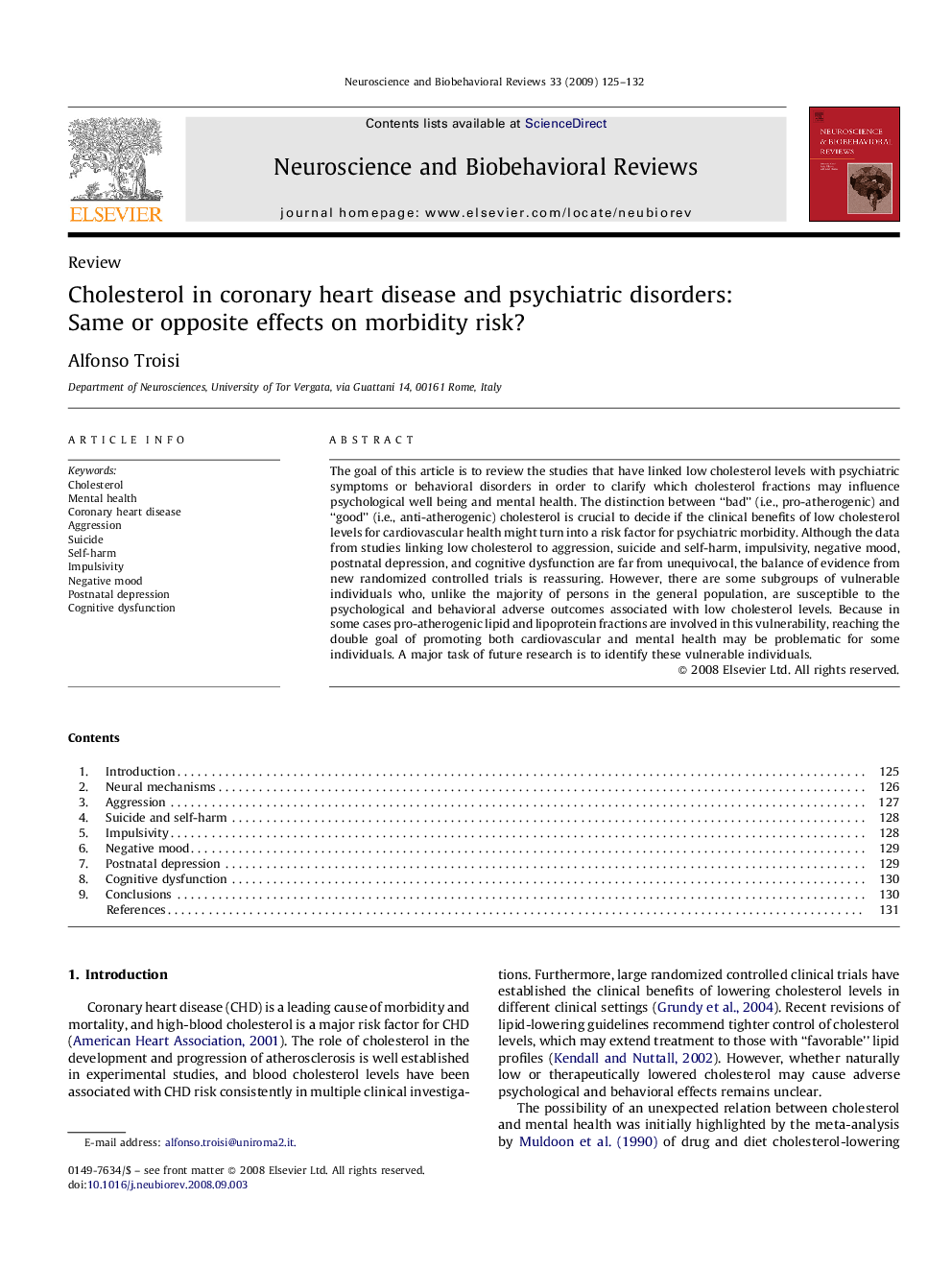| کد مقاله | کد نشریه | سال انتشار | مقاله انگلیسی | نسخه تمام متن |
|---|---|---|---|---|
| 938211 | 924598 | 2009 | 8 صفحه PDF | دانلود رایگان |

The goal of this article is to review the studies that have linked low cholesterol levels with psychiatric symptoms or behavioral disorders in order to clarify which cholesterol fractions may influence psychological well being and mental health. The distinction between “bad” (i.e., pro-atherogenic) and “good” (i.e., anti-atherogenic) cholesterol is crucial to decide if the clinical benefits of low cholesterol levels for cardiovascular health might turn into a risk factor for psychiatric morbidity. Although the data from studies linking low cholesterol to aggression, suicide and self-harm, impulsivity, negative mood, postnatal depression, and cognitive dysfunction are far from unequivocal, the balance of evidence from new randomized controlled trials is reassuring. However, there are some subgroups of vulnerable individuals who, unlike the majority of persons in the general population, are susceptible to the psychological and behavioral adverse outcomes associated with low cholesterol levels. Because in some cases pro-atherogenic lipid and lipoprotein fractions are involved in this vulnerability, reaching the double goal of promoting both cardiovascular and mental health may be problematic for some individuals. A major task of future research is to identify these vulnerable individuals.
Journal: Neuroscience & Biobehavioral Reviews - Volume 33, Issue 2, February 2009, Pages 125–132